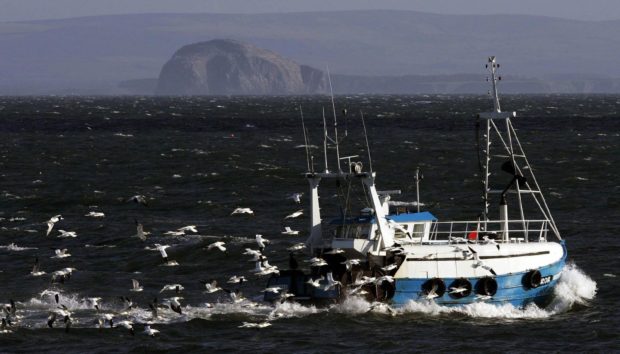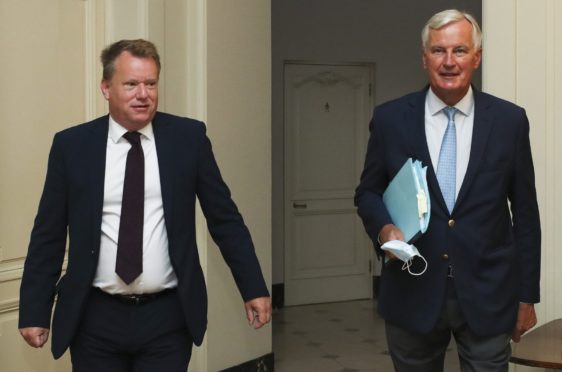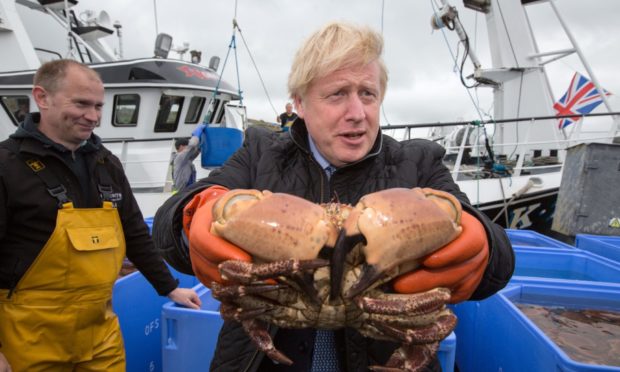Fishing leaders “fear” a last-minute Brexit sell-out, amid reports Britain is prepared to offer European fishing fleets continued access to UK waters following the end of the transition period.
UK negotiators are said to have offered a three-year transition period for EU vessels to allow them to prepare for the post-Brexit changes as part of an 11th-hour deal sweetener.
The lengthy transition period is believed to be contained in a new negotiating paper tabled ahead of the final round of negotiations in Brussels.
Barrie Deas, chief executive of the National Federation of Fishermen’s Organisations (NFFO), said there was “no expectation within the UK fishing industry” that the UK would renege on promises.
But, he added: “I think the fishing industry’s fear, right from the beginning, has been that we would again be sold out as we were in the 1970s.
“That fear hasn’t gone away.”
Mr Deas, speaking to journalists this morning, warned Boris Johnson that his government would get a “kicking” from the industry if an acceptable agreement was not reached.
He said: “Fishing is a litmus test for Brexit; we will know very soon, we will know this year, whether we’ve got a good deal on fishing or not.
“I think the government would find it very difficult politically among its own supporters, never mind the kicking it would get in the press and from the fishing industry, if it came back with a poor deal on fishing.”
In a joint letter to UK chief negotiator David Frost, sent on Wednesday, the NFFO and Scottish Fishermen’s Federation said it was “imperative” that Britain remained “steadfast” in the final days of talks.
The letter, seen by us, read: “Getting a sub-optimal deal on fishing would constitute failure to deliver on promises made to the industry, and would perpetuate the deeply unfair arrangements under EU membership, where others have benefited hugely from the UK’s natural resources, to the UK’s very significant disadvantage.”
The UK remains fixed on replacing the common fisheries policy with a system of “zonal attachment” that would offer a significant increase in catches for British fishing fleets.
Mr Deas said the fisheries agreement, signed between the UK and Norway, should be a model.
“That deal will take the form, we think, of the usual kind of arrangements between two independent coastal states, so cooperation on managing shared stocks, annual fisheries agreements, quota shares based on zonal attachment,” he said.
“I think what the Norway/UK agreement does is underline that it’s the EU that is the outlier in this by comparison with other countries, other coastal states.”
Asked about UK Government arrangements for the export of fish and shellfish in the event of a no-deal exit, Mr Deas said there was still a “high degree of uncertainty” about what would happen at UK ports.
Cabinet Office minister Michael Gove said last week that lorries transporting fish and shellfish to the continent will be “prioritised” and handed special permits to bypass the lorry queues.
Responding to concerns that many fishing firms could simply land their catch on the continent to avoid chaos at ports, Mr Deas said: “I can understand why the ports and perhaps the processors would favour requirements to land, say, 70% of your catch in the UK, but it would put the catching sector at a competitive disadvantage.”


